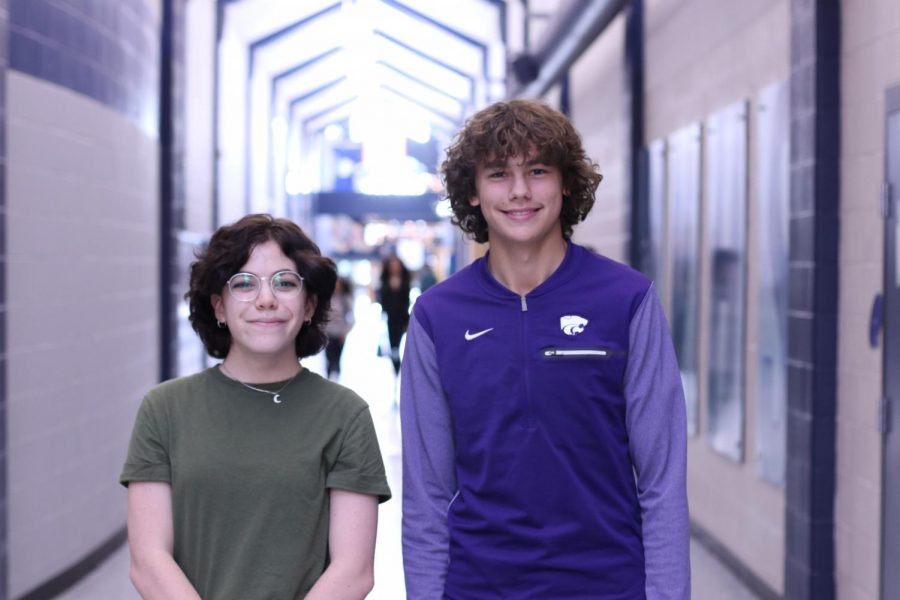By Luke Wood
Junior Josie Foltz and sophomore Broden Resch are only two out of the two million individuals in the U.S. who have Celiac Disease
Sophomore and junior students discuss Gluten-free Awareness Month
In honor of Gluten-Free Awareness Month, students share their struggles with being gluten-free and how finding food within their diet can be a challenge
November is Gluten-free Awareness Month, celebrating the spread of information in regards to gluten-free diets, which can be a personal choice but is often a result of Celiac disease. Celiac disease is defined as an immune disease where eating gluten can trigger the immune system to harm the small intestine in response. Junior Josie Foltz and sophomore Broden Resch are two out of the two million in the United States that suffer from this disease. Untreated Celiac disease can cause many long-term health effects like anemia, early-onset osteoporosis, and infertility. Celiac is usually hereditary and is passed down through ancestors.
Foltz has a unique case of Celiac Disease. The disease is in her genetics, but she did not inherit it from a family member.
“Celiac disease is genetic, it’s usually hereditary, but for my case it was genetic but it didn’t come from my family,” Foltz said.
Broden Resch’s case is a little more standard when it comes to Celiac, and he inherited the disease from his dad. However, Resch explains that he is less sensitive to gluten than his father.
“My dad is also gluten-free because it’s hereditary, that’s where I got it from,” Resch said. “He’s more sensitive than I am to it, I can cheat a little bit, but he can’t cheat at all, he would be out for the whole day”.
While avoiding gluten may seem easy, our sources revealed the true difficulty that they experience. There is a lot of anxiety when it comes to gluten-free diets. People with these diets have to worry about anything and everything that they consume.
Resch explained the worry involved in something as simple as eating a snack.
“I have to watch what I eat a lot,” Resch said. “I always have to check the back label [on food packaging] and make sure there’s no gluten in it”.
Cross-contamination can be a huge worry for those who have any allergies, including those with Celiac disease. Something may be gluten-free, but if it is cooked in the same place as something else that is not, it may still cause a reaction. Foltz expressed how eating food in restaurants can be extremely nerve-wracking due to a fear of cross-contamination.
“Some restaurants offer barely any options at all except for salads,” Foltz said. “For example fries, fries can be gluten-free, but it is still cooked in the same frying oil as regular fries causing cross-contamination.”
Celiac disease is a very real and scary thing for those that have it, and there are a lot of misconceptions about how dangerous it can really be. To help the fight to find a cure, click here and donate to the non-profit to support the individuals who have Celiac.
